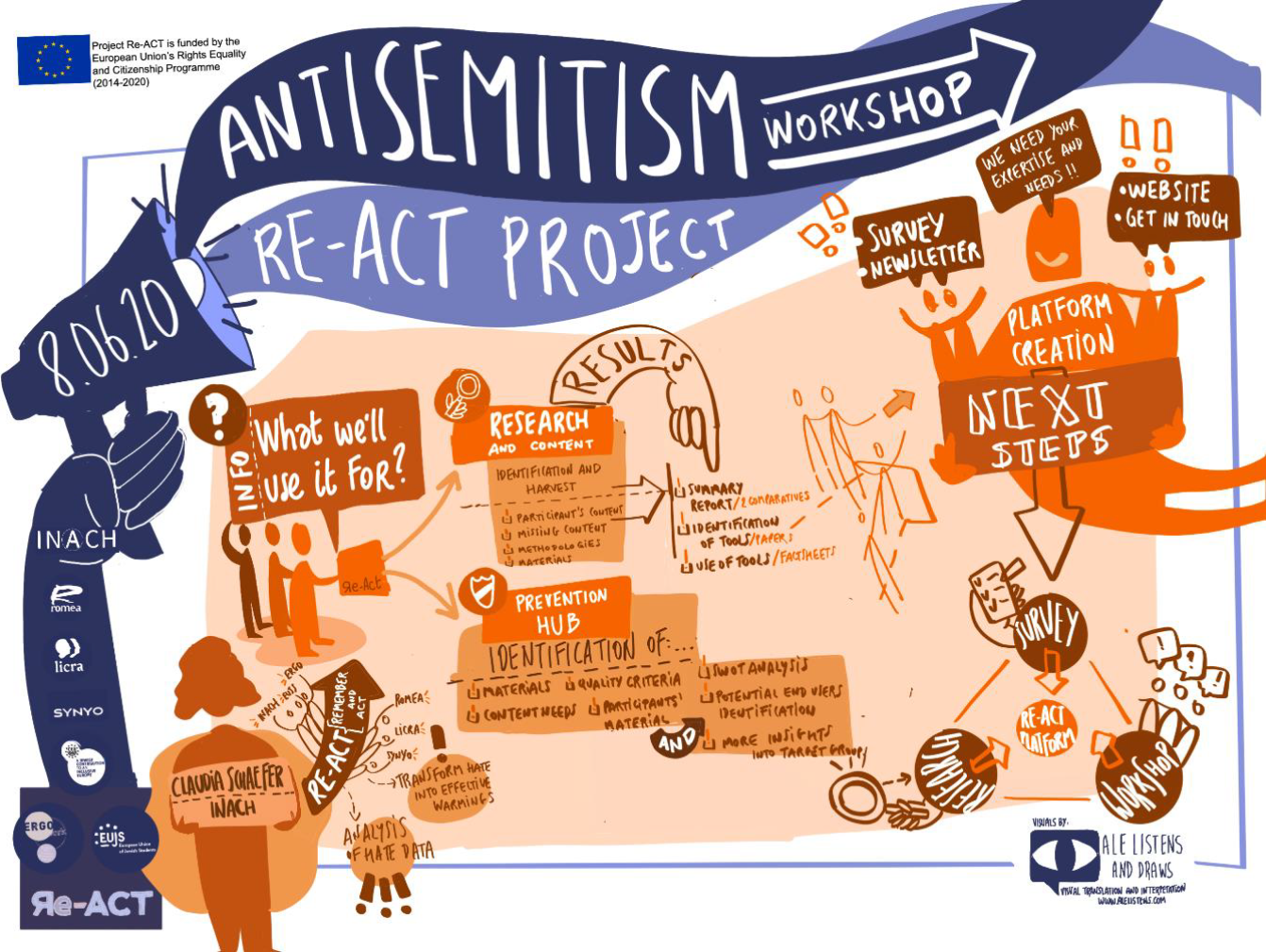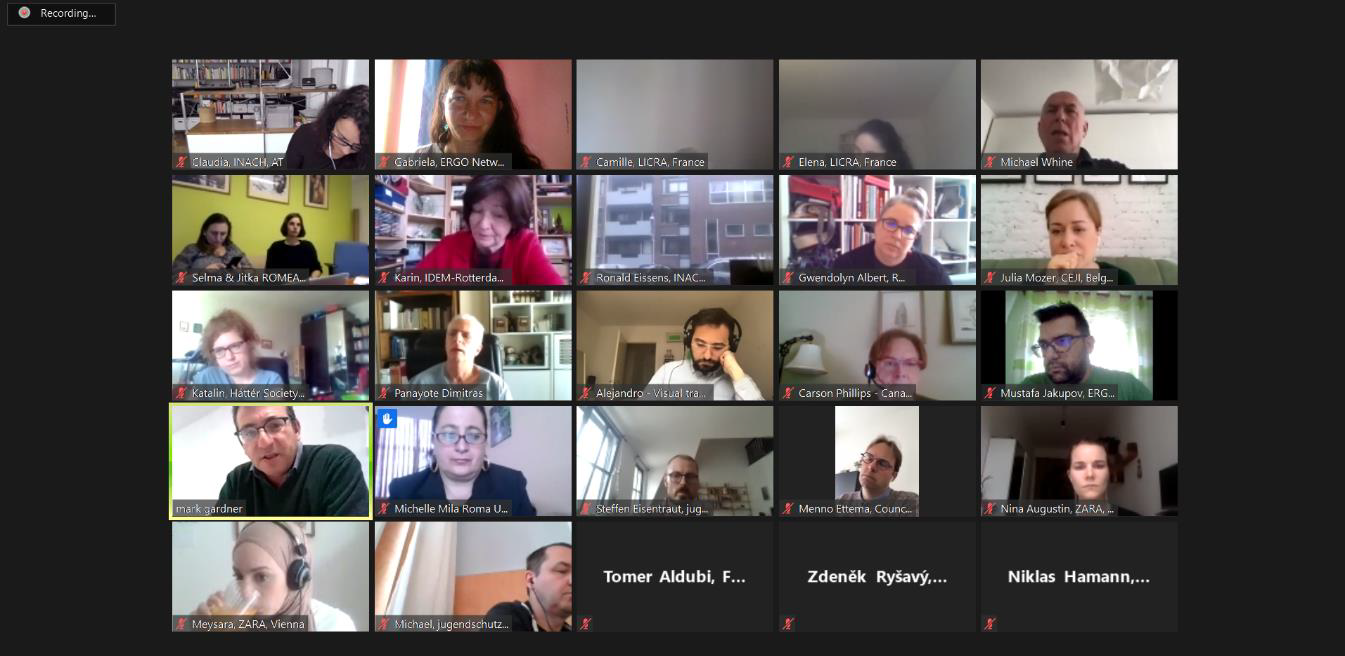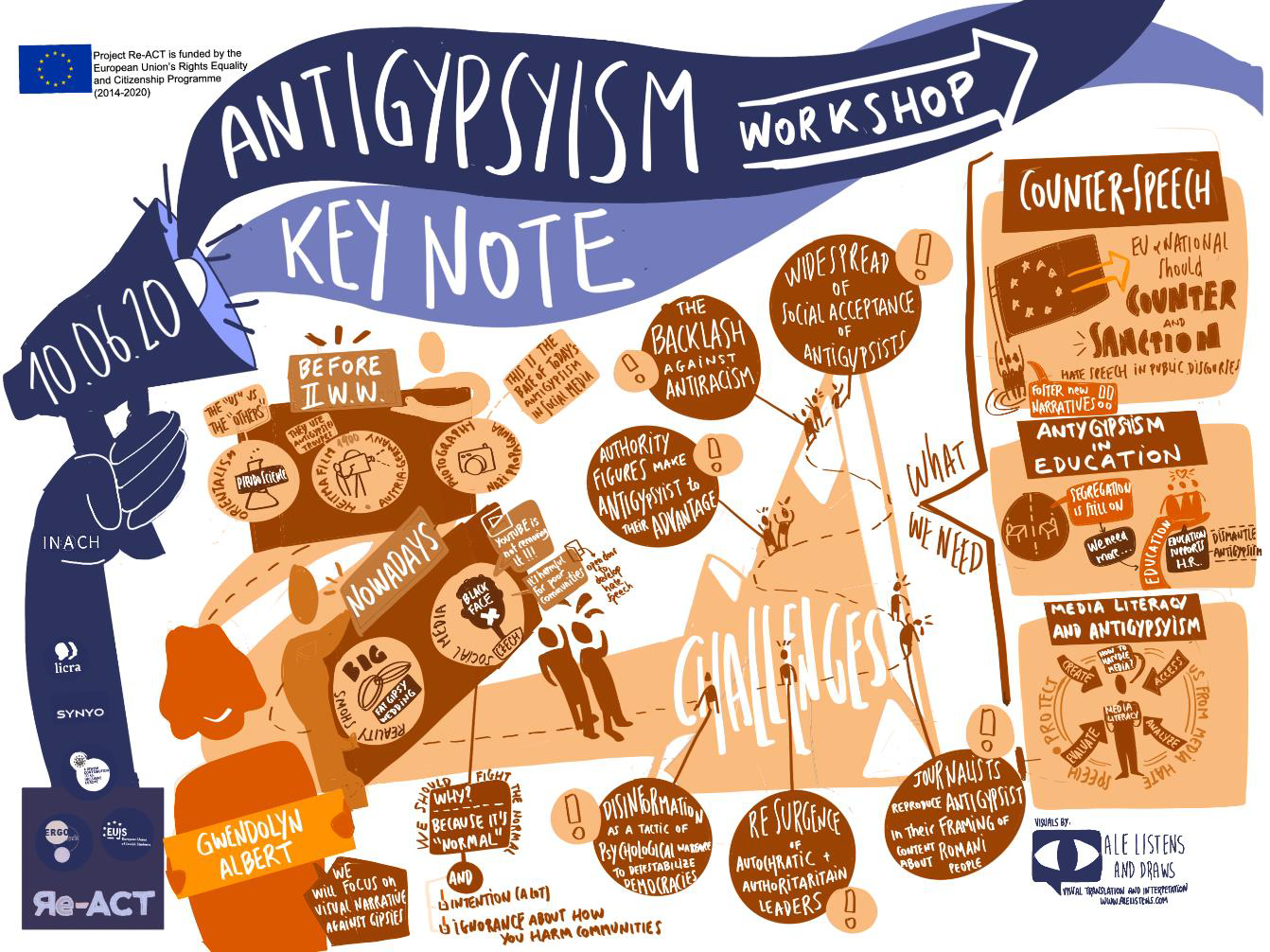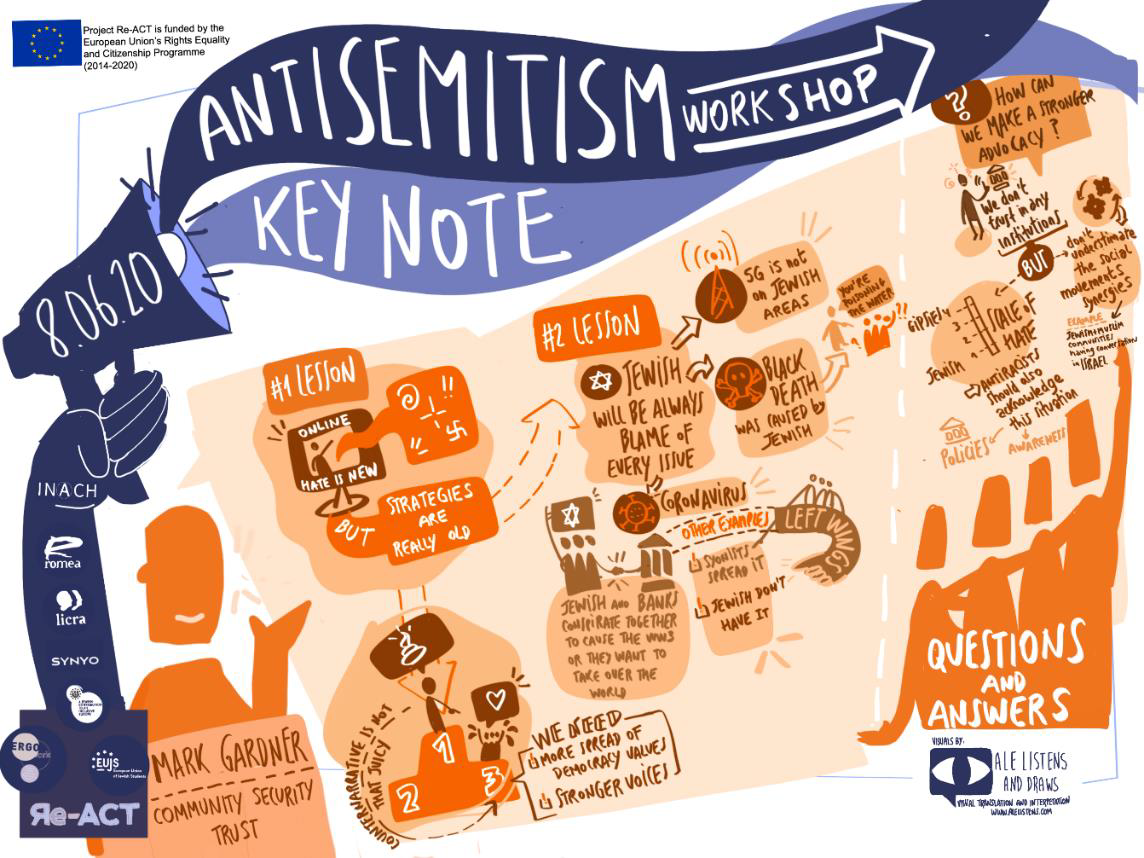The project consortium of project Re-ACT! invited experts from various sectors involved with the prevention of online hate to participate in an online workshop on online antigypsyism and antisemitism. The aim of the workshops was to identify the needs for their activities in order to address these and other forms of online hate. The workshops have been organized by our project partner ROMEA.

Summary
On June 8th and June 10th, 2020, the first project-activity involving external stakeholders kicked off online with two half-day long online conferences: one about the phenomenon of antisemitism and one about the phenomenon of antigypsyism on the internet and their historical roots.
The workshops have been organized by the Czech organization ROMEA as part of their involvement with the international project Remember and Act! (Re-ACT), together with the project partners International Network Against Cyber Hate (INACH), LICRA and SYNYO.
Both conferences and the subsequent specialized workshops were attended by more than 50 experts from almost 20 countries worldwide, including Canada, Germany, Israel, Romania and Spain. Both events were organized in close collaboration with the European Roma Grassroots Organisations Network, ERGO, which is a cooperation partner of the project.
The main contribution to the online conference about antigypsyism on June 10th was made by Gwendolyn Albert, a consultant of ROMEA who has long been researching discrimination and human rights violations against Romani people in the Czech Republic and abroad. In her keynote, she focused on contemporary forms of antigypsyism on social media.
“Both antigypsyism and antisemitism are rooted in centuries of European imaginings about how to define members of the ‘nation’ or the polity,” she said. “Scholars such as Sarah Carmona and others have been tracing the visual imagery in European culture that has been used to exoticize Romani people and render them ‘foreign’, and aspects of that imagery are being recycled on social media today.”
A recording of Ms. Alberts keynote on antigypsyism for the Re-ACT workshop on June 10th, 2020, can be viewed here.
The keynote on the focus topic antisemitism on 8th of June has been delivered by Mark Gardner of the organization Community Security Trust, UK, which is involved in monitoring antisemitism, racism, and xenophobia as well as defending the victims of hate.
A recording of Mr. Gardeners keynote on antisemitism for the Re-ACT workshop on June 8th, 2020, can be viewed here.
Both speakers focused on illuminating the ideological background to these contemporary phenomena and how they are connected to “old” concepts of hatred against Jewish and Romani minorities that were established, for example, in Nazi propaganda.
During the workshops that followed the main thematic blocs, experts on online hate speech, youth workers, historians and human rights activists shared their experiences from practice and discussed their needs for combating antigypsyism and antisemitism online and beyond. Together they did their best to identify educational materials, examples of good practice, and instruments that have stood the test of time in preventing racism, xenophobia and other forms of hate being disseminated both offline and online through various platforms.
Visual translations by Ale listens and draws: www.alelistens.com
Draft summary and video editing: ROMEA.cz
Background note
The willingness of experts to share their experiences and knowledge is an essential component of project Re-ACT, the aim of which is to raise awareness about the motivations of those committing these acts by analysing hateful practices and hate speech and how to defend the online space against them effectively. This effort is appearing more and more necessary today given that those who directly witnessed the horrors of the Holocaust are passing away, and the number of people doubting what impacts the ideology of the Nazis had is increasing.
The project consortium would like to thank all collaborators, contributors, volunteers and participants for their valuable contributions and help!




